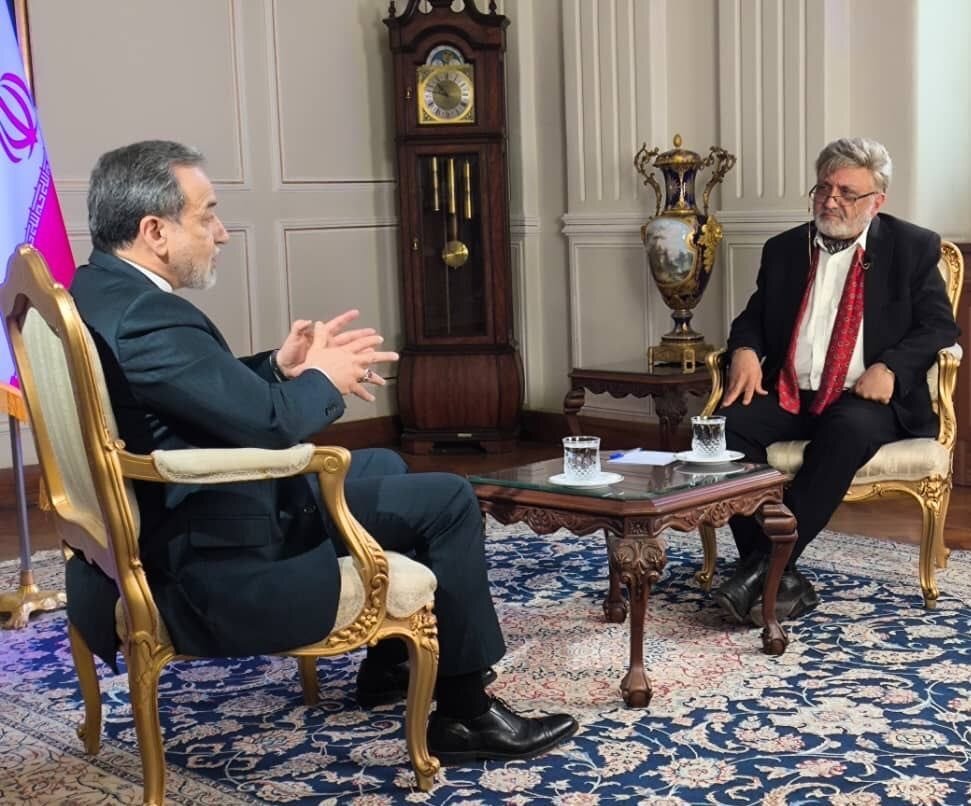Iran ready for interaction with US on equal footing: Araghchi

TEHRAN – The Iranian foreign minister says Iran has always favored diplomacy and is ready to sit at the negotiating table with the Americans if they act in good faith.
“We have not had any positive experience with the United States despite the fact that each time we came forward honestly and opened a way. However, even without trust, it is possible to have engagement with caution,” said Abbas Araqchi in an interview with an online network.
“We have never given up diplomacy if the Americans are prepared to get engaged in serious talks on an equal footing, with an honest approach, seeking to secure an agreement that would serve mutual interests, and not a unilateral one, based on mutual respect, in a bid to work out a solution that would satisfy both sides,” said the top diplomat.
“There is no reason for either side to pay unnecessary costs…we have serious differences with the U.S., most of which stem from Washington’s pursuit of dominance.”
Araghchi underscored that Iran will not give in to pressure or coercion but is receptive to respectful dialogue.
“The Iranian nation does not respond to the language of force, pressure, or sanctions”, he added. “But if you speak with the Iranian people with dignity and act with respect, you will receive the same in return.”
Days ago, the secretary of Iran’s Supreme National Security Council rejected outright demands for the country to reduce the range of its missiles, something the Americans have been bringing up behind the closed doors in their messages to their Iranian counterparts.
“Calls to reduce the range of missiles amounts to demand for submission and stripping the country of national security,” said Ali Larijani. “The reduction of the range of missiles is tantamount to the undermining of the country’s most important defensive tool.”
Iran’s nuclear issue had been a bone of contention with the West since 2003. Several rounds of talks were held with the West to settle the issue until 2015 when the Iran nuclear agreement known as the Joint Comprehensive Plan of Action (JCPOA) was signed.
Under the JCPOA, Iran accepted confidence-building limits on its nuclear program in exchange for the lifting of UN, U.S., and EU sanctions. The agreement was endorsed by UN Security Council Resolution 2231, which also set a timeline for the permanent expiration of nuclear-related restrictions in October 2025.
However, Iran repeatedly complained that the United States, even under former President Barack Obama, was reluctant to allow Tehran to benefit economically from the deal. In 2018, the U.S. unilaterally withdrew from the JCPOA and reimposed sweeping sanctions on Iran.
In response, and after waiting over a year for the European parties to compensate for the U.S. withdrawal, Tehran began gradually reducing its compliance with the nuclear limits in accordance with the JCPOA, while insisting it remained open to negotiations if sanctions were lifted.
Iranians took part in several rounds of talks to revive the deal in 2022. Russia's Permanent Representative to international organizations in Vienna Mikhail Ulyanov has said the remaining signatories to the 2015 Iran nuclear deal (Iran, Russia, China, France, Germany, and Britain) were about to reach an agreement on the revival of the pact before Europe left the talks in coordination with Washington in September of 2022, the time Iran became convulsed with deadly riots.
He said the Europeans are not the key players here and whether the nuclear deal can be saved or not depends on the actions of the United States.
Iran’s next major attempt to find a diplomatic solution for the nuclear dispute took place this year, as it agreed to engaged in indirect negotiations with Washington. Those talks were rendered fruitless as well as they suddenly came to a halt due to U.S.-Israeli attacks on Iranian nuclear facilities.
Last week, Leader of Iran’s Islamic Revolution Ayatollah Seyyed Ali Khamanei warned that the U.S. is in no position to dictate anything to Iran.
